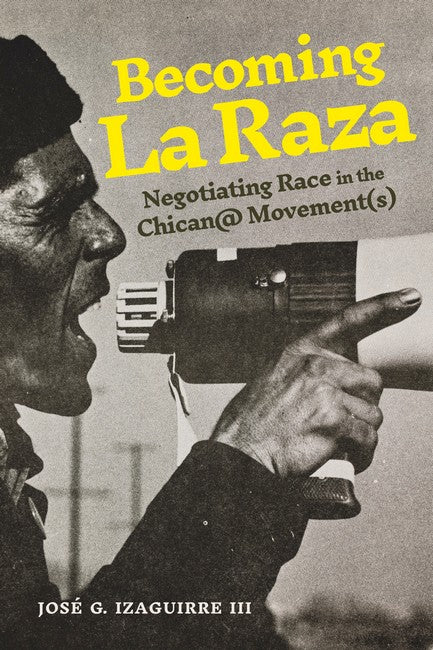Jose G. Izaguirre III is Assistant Professor in the Department of Communication at the University of Colorado Boulder.
Request Academic Copy
Please copy the ISBN for submitting review copy form
Description
List of Illustrations Preface Acknowledgments Introduction 1. A De/Colonial Aesthetic: Whiteness and Mexican American Politics (1848-1965) 2. A Poetics of Apathy: The Farmworkers' Movement and El Plan de Delano (1966) 3. A Poetics of Ambivalence: "I Am Joaquin" and the Year of La Raza (1967) 4. A Poetics of Relationality: The Invention of a Global Raza (1968) 5. A Poetics Otherwise: (Re)Bordering Mexican American Politics (1969) 6. A Poetics of Deferral: La Raza, Ruben Salazar, and a Global Violence (1970) Conclusion Notes Bibliography Index
"Becoming La Raza opens the door for further discussion on the diverse perspectives that can be used to reexamine the Chicano Movement through a multivocal lens." -L. H. Moreno Choice "Jose G. Izaguirre III's Becoming La Raza offers a much needed refreshing update to the study of Chicano movement rhetorics. Drawing on key rhetorical texts and informed by his own family history, he offers illuminating new insights that reflect not only historical trends but contemporary reverberations." -Bernadette Calafell, coeditor of Negotiating Identity and Transnationalism: Middle Eastern and North African Communication and Critical Cultural Studies "Jose G. Izaguirre III offers readers a compelling racial rhetorical history of Chican@ movement(s) discourse by analyzing the aesthetics of canonical Chican@ texts. Becoming La Raza is riveting to read due to its forceful arguments about selected texts, engagement with cross-disciplinary literature, and nuanced analysis that reveals the racialization by and of Chican@s during the highly charged period of 1965-1970. This book is a must read for those interested in rhetoric, race, violence, social movements, and Chicana/o studies." -Michelle A. Holling, co-editor of both Latina/o Discourse in Vernacular Spaces: Somos de Una Voz? and Race(ing) Intercultural Communication: Racial Logics in a Colorblind Era

